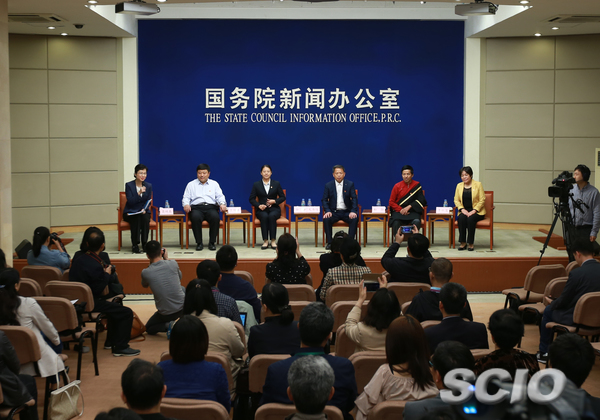Good practices at grassroots effective
Joint efforts from both grassroots officials and poor residents are essential to revitalize China's vast rural areas and win the battle against dire poverty, local officials said on April 26.
Joint efforts from both grassroots officials and poor residents are essential to revitalize China's vast rural areas and win the battle against dire poverty, local officials said on April 26.
Long Shuwu, Party chief of an ethnic Miao community in Hunan province, said residents were once dependent on government assistance and lived in poverty, but when they were motivated to initiate a change through their own efforts, they saw a major transformation.

"The village is now making progress in raising crops and livestock and is developing tourism. We had no collectively owned businesses in the past, but our income reached 600,000 yuan (US$94,774) as of the end of last year, and is expected to double this year," he said.
Long, 49, made the remarks at a news conference held by the State Council Information Office to share the good practices employed by Long and four other grassroots officials to battle poverty and develop their local economies.
China has pledged to eradicate extreme poverty by the end of 2020. The country's poor population — which stood at more than 98 million at the end of 2012 — was cut by two-thirds in the most recent five-year period. Many of the remaining 30 million live in remote areas.
In February, the central government released its No 1 Central Document of 2018 — which lays out policy priorities for the year. The statement this year features a strategy that aims to revitalize China's vast rural regions.
In addition to motivating residents, Yu Jing, Party chief of Dawan village in Anhui province, said at the news conference that the continued investment in the infrastructure in her village had enhanced people's sense of happiness.
"The input has made it easier for villagers to travel outside and brought about changes in many aspects of their lives. And the village also became prettier," she said.
He Xun, who heads a Lisu ethnic community in Yunnan province that now boasts forest coverage of more than 98 percent, stressed the importance of adopting measures that suit local conditions.
"We forbid the cutting of the forest," he said. "We also build facilities to provide electricity, solar power and methane to villagers."